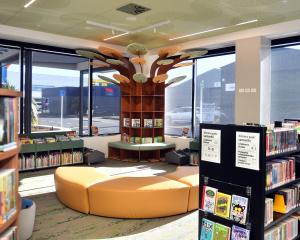Planet Earth and its inhabitants are facing a ''perfect storm'' of extreme climatic and environmental challenges and the future will have ''no precedent in the past'', Dunedin Mayor Dave Cull has warned.
The pace of change was now so great that University of Otago graduates should not wait to become what was ''sometimes patronisingly'' termed ''the leaders of tomorrow'', but should start leading now.
That was Mr Cull's message in an address to about 350 graduates, in a wide range of disciplines, during the university's latest graduation ceremony, at the Dunedin Town Hall at 3pm on Saturday.
Earth was ''an interdependent system whose human population exploded exponentially because of the enormous input of cheap fossil energy, starting less than 200 years ago''.
''We are now faced not only with the drastic cutting down of that energy supply, but also the negative effects of its concentrated use.
''It's a composite but interconnected storm of energy depletion and rising costs, climate change, sea level rise and food shortages,'' he said.
He also warned of ''secondary conflicts'', and said humans had not faced this combination of changes, or even one of them, at any stage in the past.
''So, to a very large extent, experience of the past is of little use in confronting our future.
''We can be absolutely certain that our future won't unfold like our past, and that totally new forces will reshape our communities, how we interact with other communities, how we get around, how we feed ourselves.
''Inevitably, we will need to change much about our lives and how we interact with our world.''
Mr Cull said that over the past few years he had ''learned more from younger people than older''.
And, including while hearing submissions on various plans and strategies, he had been ''incredibly impressed by the commitment, intelligence, passion and values of so many of the young people'', particularly those in the city's tertiary education sector.
''That's not undervaluing the wisdom of age, just appreciating the vibrant pertinence of so many younger voices and minds.''
He emphasised the importance of thinking in ''fresh ways, sometimes intuitively'' and ''clear appreciation of fact and evidence untainted by wishful or nostalgic thinking''.
It was understandable that the older most people or leaders got, ''the more they look backwards, not forwards''.
And he also noted the ''mental sclerosis and settled habits that so often accompany age''.
But it was ironic that some older people, especially politicians, claimed ''more right to control based on their past experience, than young people who, by definition, have more future to be concerned about''.
He noted the proverb ''He that lives in hope, dances without music.''
And he urged graduates to ''dance, and make your own music''.











